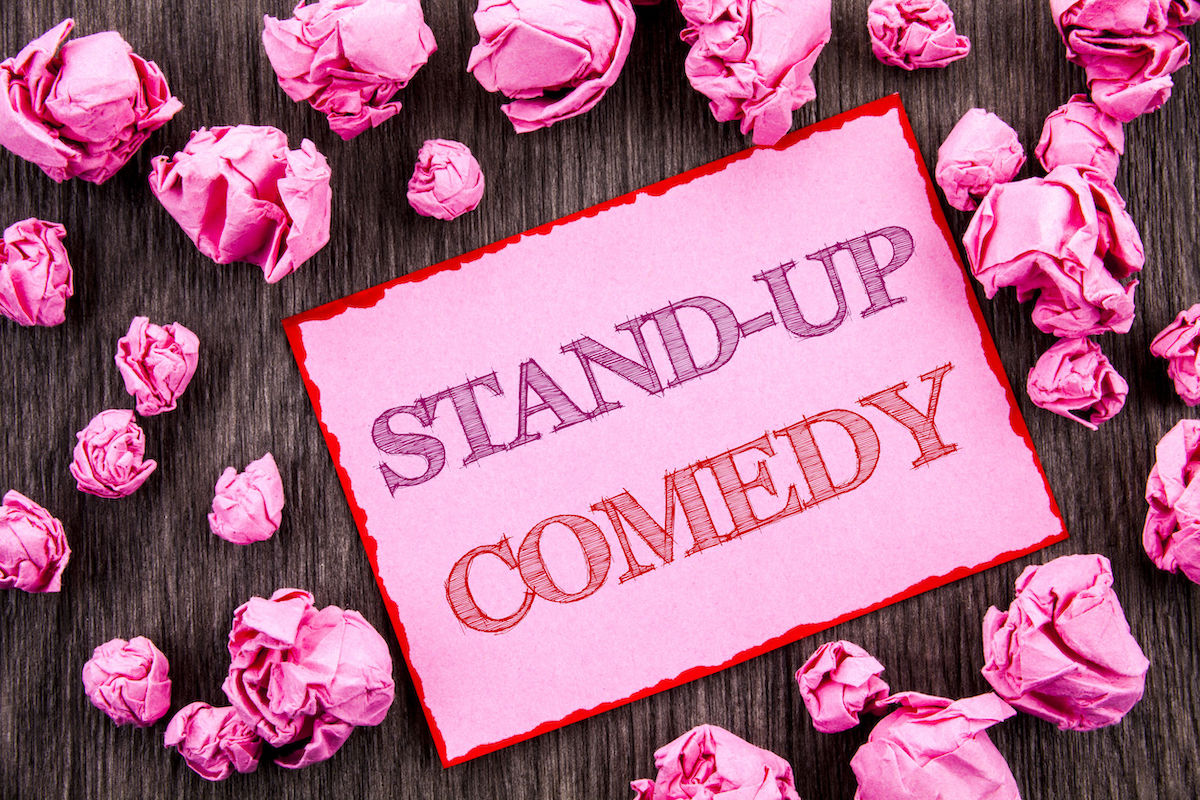
When I was asked to write a piece about finding my bliss, I chuckled. All I could think was, “Boy, do you have the wrong guy!” I’ve been a comedian for 41 years on stage, but as my t-shirt says, “Comedy is not a job, it’s a personality disorder.” Although comedians spread joy, we are immune to the disease. There is a tendency among comedians to be skeptical and ironic, if not downright miserable. Comedy generally acts as a coping mechanism for the things in life that bother us. The job attracts those of us who are suspicious of surface gloss and niceties. Bliss comes from opening oneself to possibilities and accepting things as they are. To a comedian, every smile is interpreted as an attempt to coerce or sell something to us. The same language used by philosophers and religious figures is co-opted to sell cars and cologne. We know that the pristine walls of a beautiful home hide a tangle of wires and plumbing and insulation. To our minds, the notion of bliss is really denial. It is willful ignorance of the ugliness, venality and greed people try to hide behind good manners and grooming.
Comedy is a way of exposing these unpleasant truths in a palatable way. Laughter is created by ramping up tension and then releasing it. In the same way that people sometimes laugh after escaping danger, a joke sets up a frightening or anxiety-provoking premise and then defangs it, causing relief and laughter. The audience trusts a comedian to provide that release. That trust makes them willing to sit through the discomfort of the set-up for the feeling they get from the punchline. The audience’s reason for enjoying comedy is precisely because it is an easy way to let go of the negative aspects of day-to-day living. The fear and drama and tension are turned into smoke by the piercing sword of the comedian’s wit. For the comedian, however, there is no release. We know the punchline already, and we are biologically or psychologically honed to obsess on the negative. In a room full of laughing patrons, a comedian sees only the one person not smiling with their arms crossed. Confidence and satisfaction do not lead a person to be funny.
For those of you who have read this far, do not despair. There is hope, even for comedians, the most cynical and paranoid people, with our eyes peeled for the detritus of life. Where is our bliss? Where is our relief from a world view that offers no solace? It is precisely in the same moment that we provide it to the audience. When we are on stage in the spotlight and a room full of people are laughing, we are simultaneously on high alert and supremely relaxed. Like a runner’s high, the knowledge that we are giving relief, healing, and therapy (because that’s what laughter is) provides us with bliss. In a world we perceive as harsh and grasping and jealous, we are providing a brief respite, a chance to see that not all hope is lost and the frustrations of life are temporary. We ourselves might never actually escape our own brains, but the knowledge that we are helping others escape theirs is, at least briefly, a supreme type of bliss. If that can exist for me, who is programmed to misery, it can exist for anyone.
We’d love to hear from you! Please send us your suggestions for future articles. And if you’re a writer, please see our writer’s submissions page for details.

